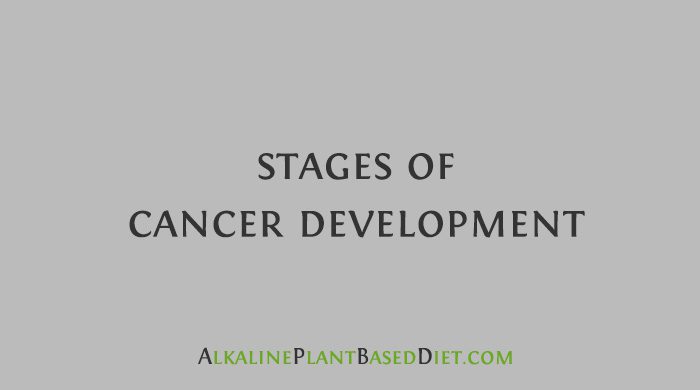Stages Of Cancer Development

Source: Alkaline Plant Based Diet
Though there are multiple agents that can cause cancer, many believe the chemicals that pollute our environment and that are used in the harvesting, packaging, and processing of our food are the main causes of cancer.
Regardless of the agent, cancer develops in three stages: initiation, promotion, and progression. I refer to chemicals as the agent within the three stages of cancer development.
Scientists believe chemicals called carcinogens act primarily in the initiation stage. The initiation stage involves the initial attachment of chemicals to cells.
Once you consume, breathe in, or touch these carcinogens, they enter the body and make their way to the bloodstream. Most of the carcinogens are fat-soluble, and they seek to store themselves in fat cells.
The liver produces enzymes that convert the carcinogens into water-soluble molecules called metabolites to remove them from the body more easily.
Learn About Foods That Support Health and Vitality on the Dr. Sebi Nutritional Guide »
Unfortunately, small amounts of carcinogens sometimes escape the full conversion process and end up as highly destructive metabolites that attack DNA, RNA, and proteins.
Though some carcinogens can attack DNA, RNA, and proteins, the body is very resilient; it is able to repair most of the damage. The body is able to repair between 99 and 99.9 percent of the affected cells.
Mutation occurs when the unrepaired cells replicate. This mutation within the initiation stage happens quickly and can occur within days. Under the right conditions, the body can halt the replication of mutated cells.
Promotion is the second stage of cancer development, where mutated cells replicate to form substantial mass. Promotion can take many years to complete.
Progression is the final stage where masses grow into large tumors and can spread from the primary site to another area of the body. This invasiveness is called metastasis and can happen in a short period.






